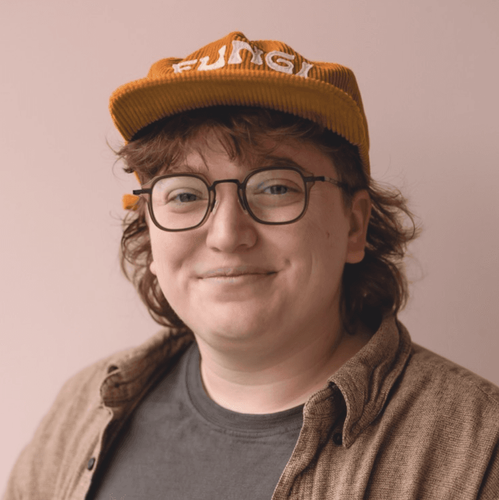Jori Bercier

Hello! My research examines how queer bookstores in Seattle create spaces for transgender belonging and embodiment. Grounded in Black feminist thought and queer theory, my work investigates how our environment measurably impacts our bodies, brains, and capacity for wellbeing—particularly for BIPOC and queer communities navigating systems not designed with their thriving in mind?
With a Master of Design Studies in Design for Human Health from Boston Architectural College, I bring scholarly rigor to understanding how architecture functions as medicine. My dissertation research reveals what neuroarts confirms: carefully designed environments don't just house communities, they actively shape conditions for healing, safety, and radical care. By studying queer bookstores as "architectures of trans belonging," I map how spatial qualities create neurological and embodied conditions for people to feel genuinely held.
This academic inquiry doesn't stay theoretical. Through PatchWork, the nonprofit and Plot and Pattern, my community development consultancy, I translate research into mutual aid practice. PatchWork mends gaps in traditional support systems by connecting service providers, resource sharers, and community members. Plot and Pattern provides strategic scaffolding—helping organizations design more equitable, sustainable, and life-affirming spaces. Together, these initiatives represent the practical output of my research: a recognition that true healing happens through networks of reciprocal care, and that we can intentionally design conditions for collective flourishing.
Drawing on my Louisiana roots and "Front Porch Culture," I approach community building as architectural and relational design. As a former independent bookstore owner who kept a 30-year-old community anchor from closing, I understand how third places become lifelines, and how spatial interventions ripple through community health outcomes.
Whether teaching urban design at UW-Tacoma, conducting ethnographic research in bookstores, or facilitating workshops on authentic connection, my work asks: How do we design with intention, care, and justice, the conditions where everyone can belong, heal, and thrive?
My practice lives at the intersection of architectural thinking, academic frameworks, and community organizing, always centering those too often forgotten in conversations about health, space, and wellbeing.